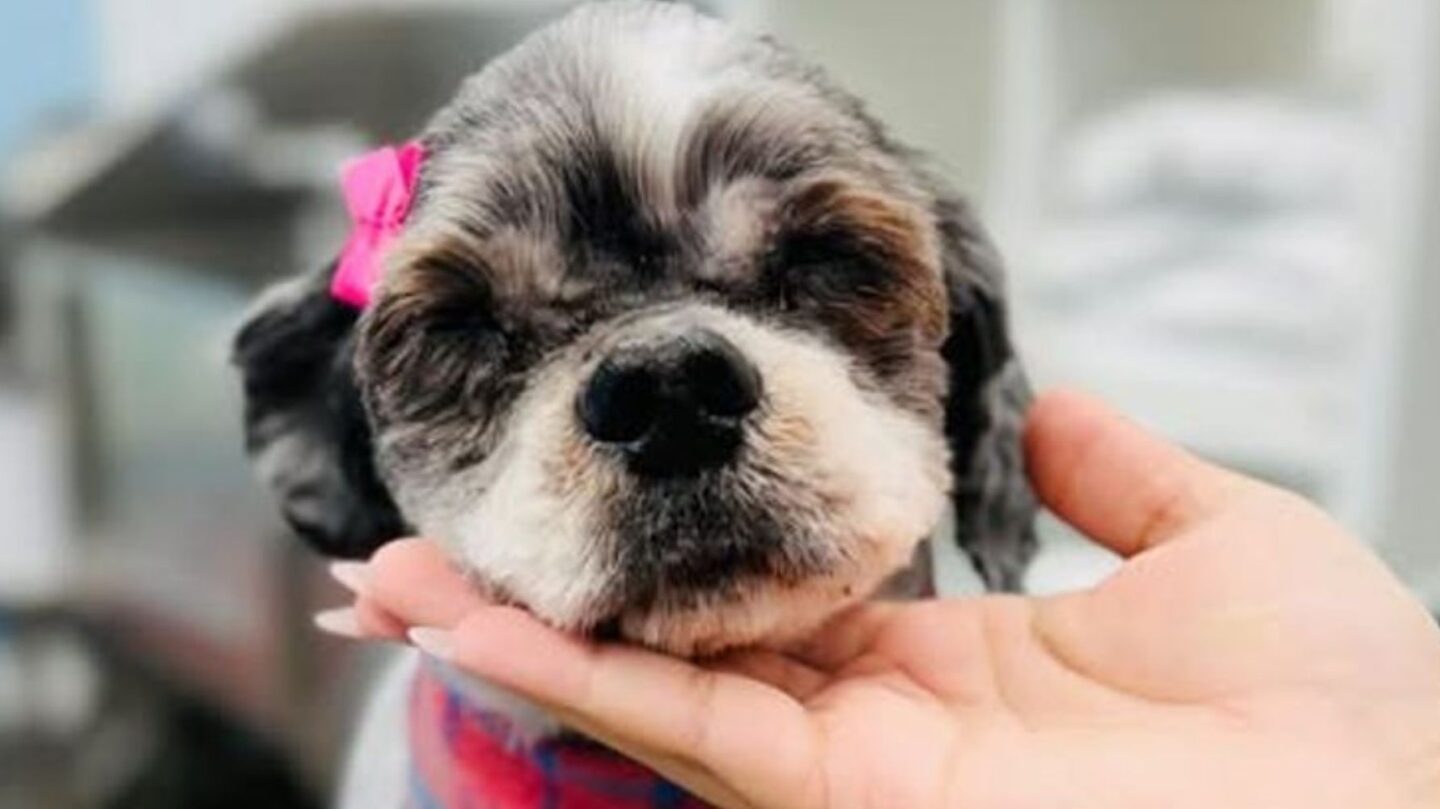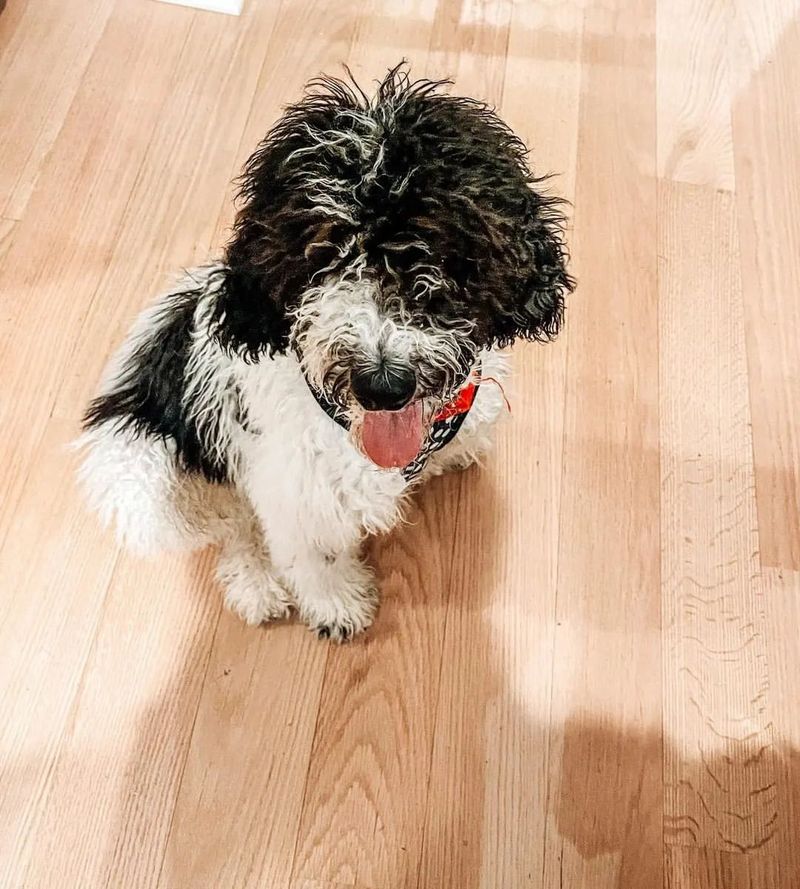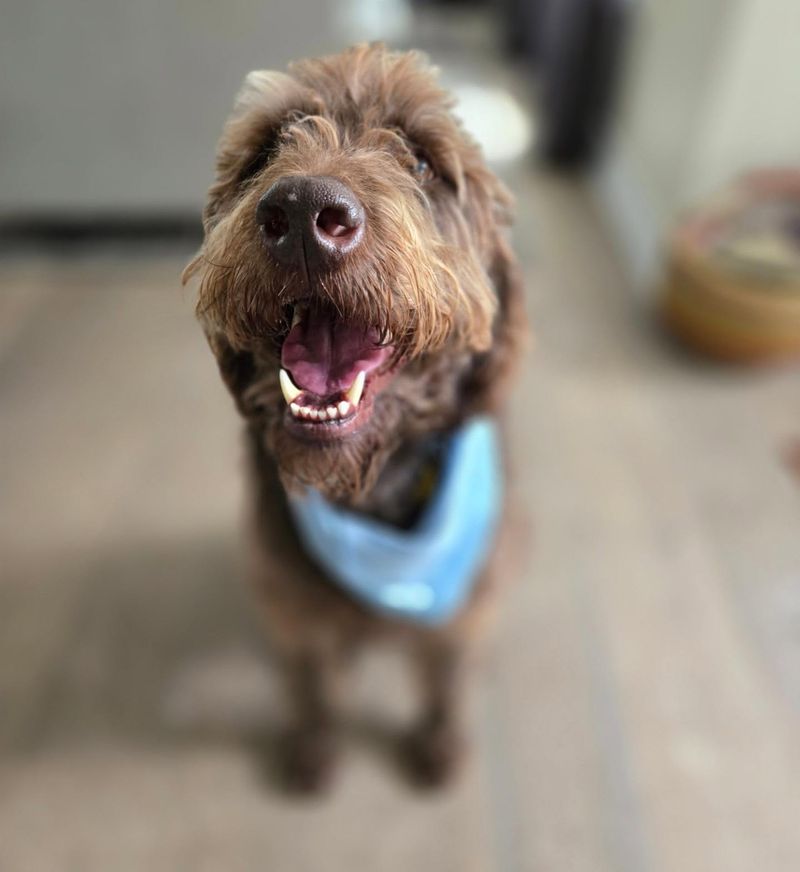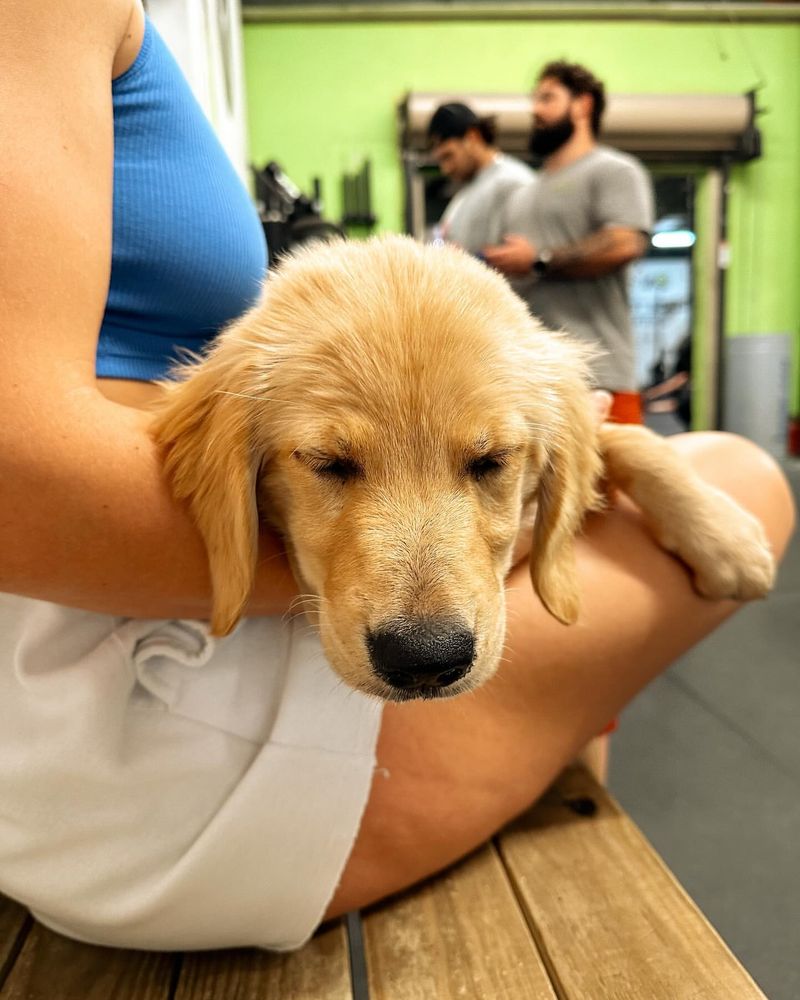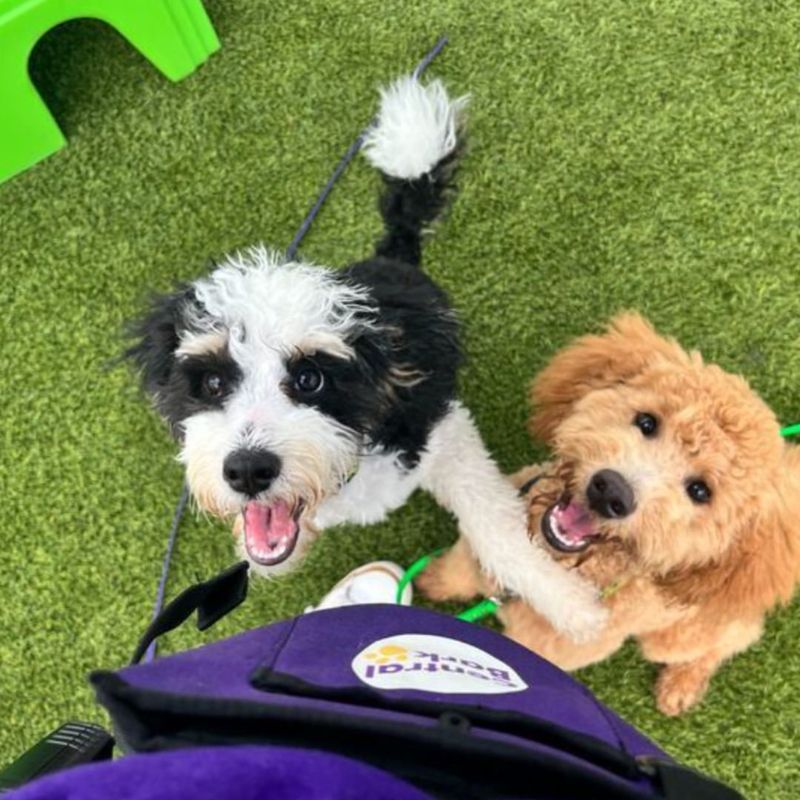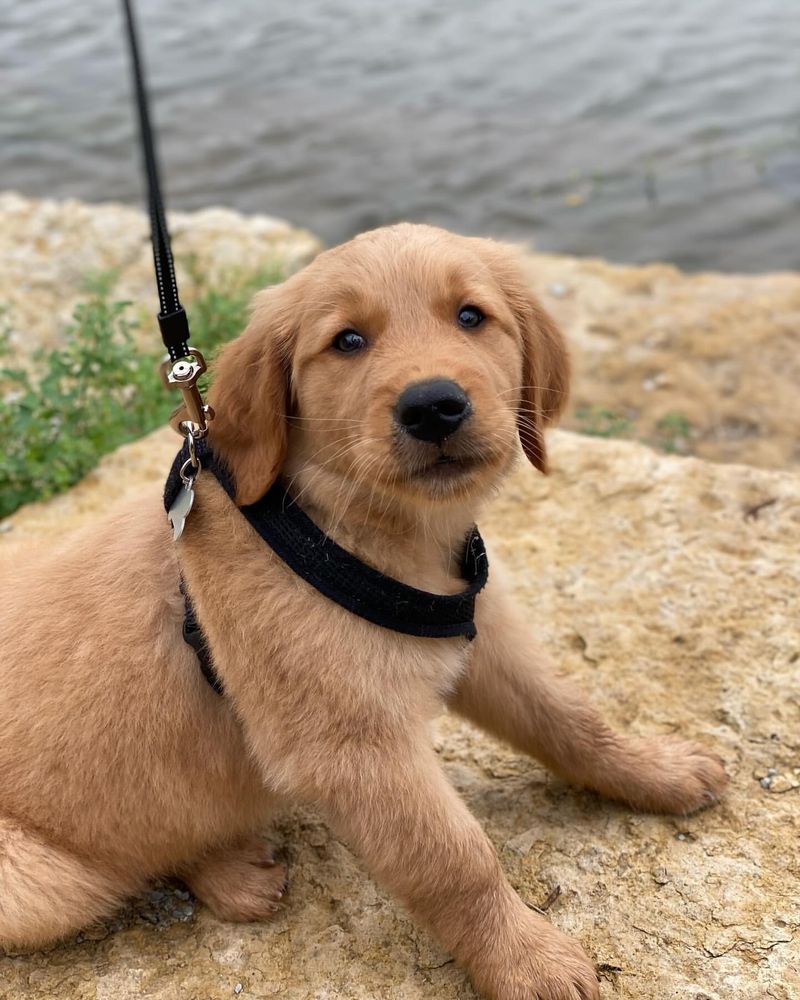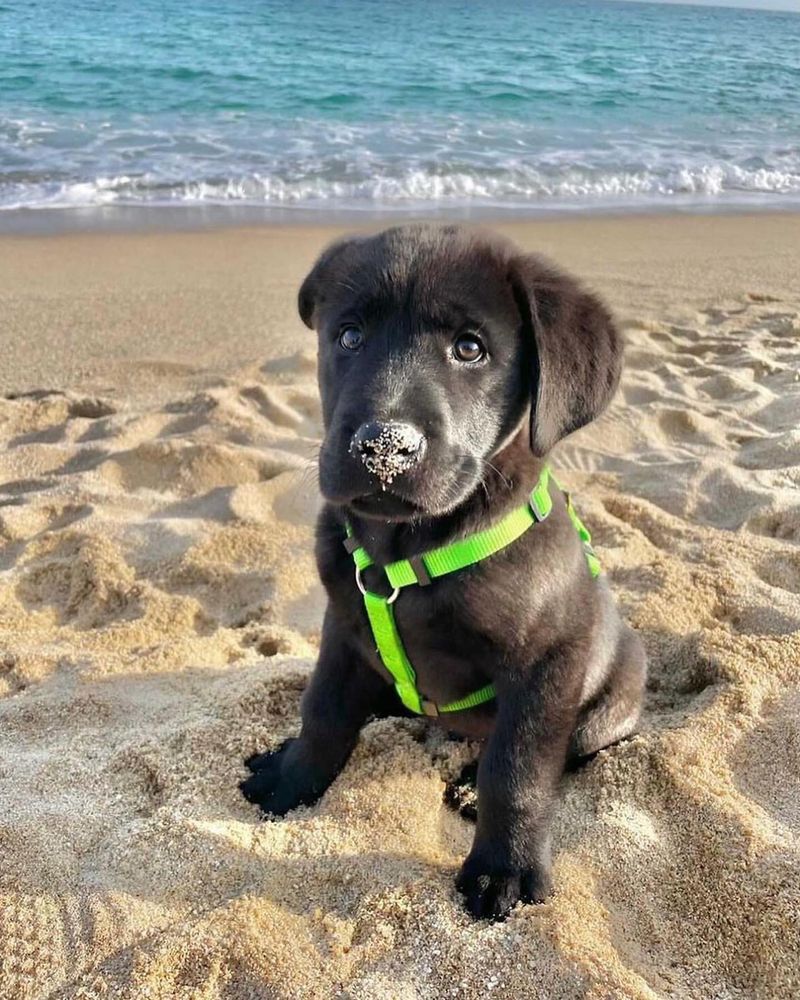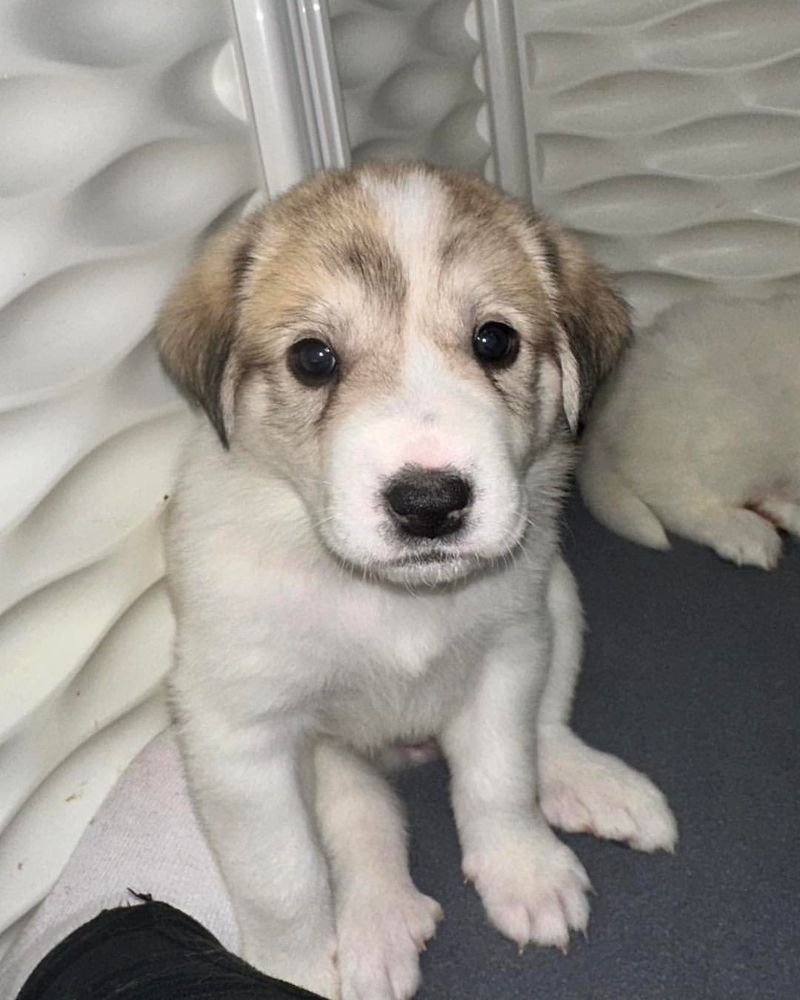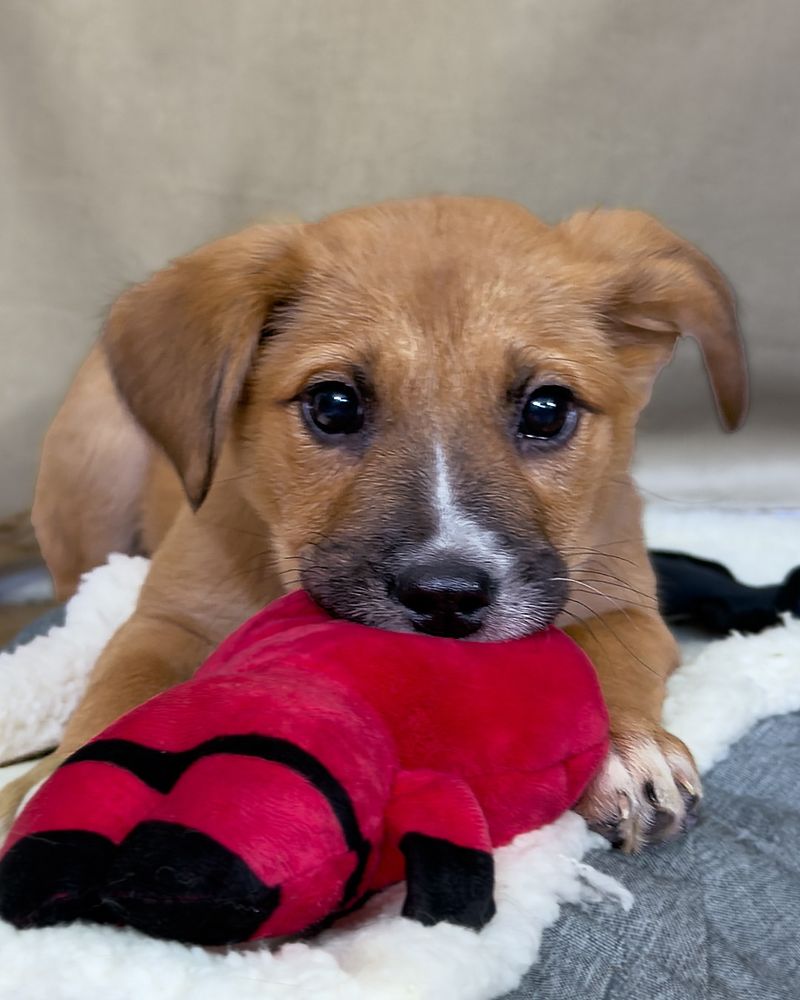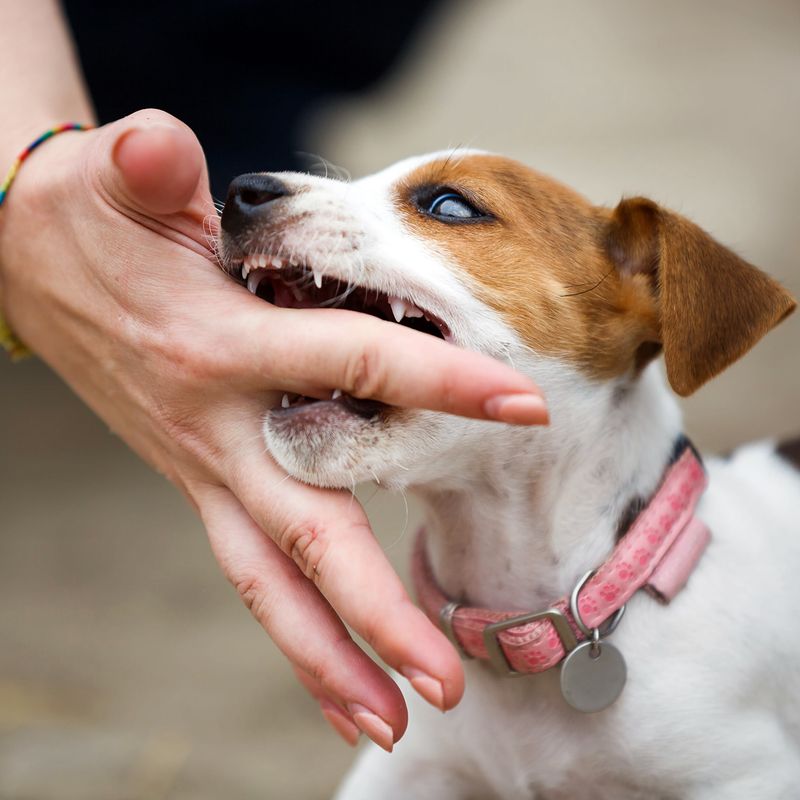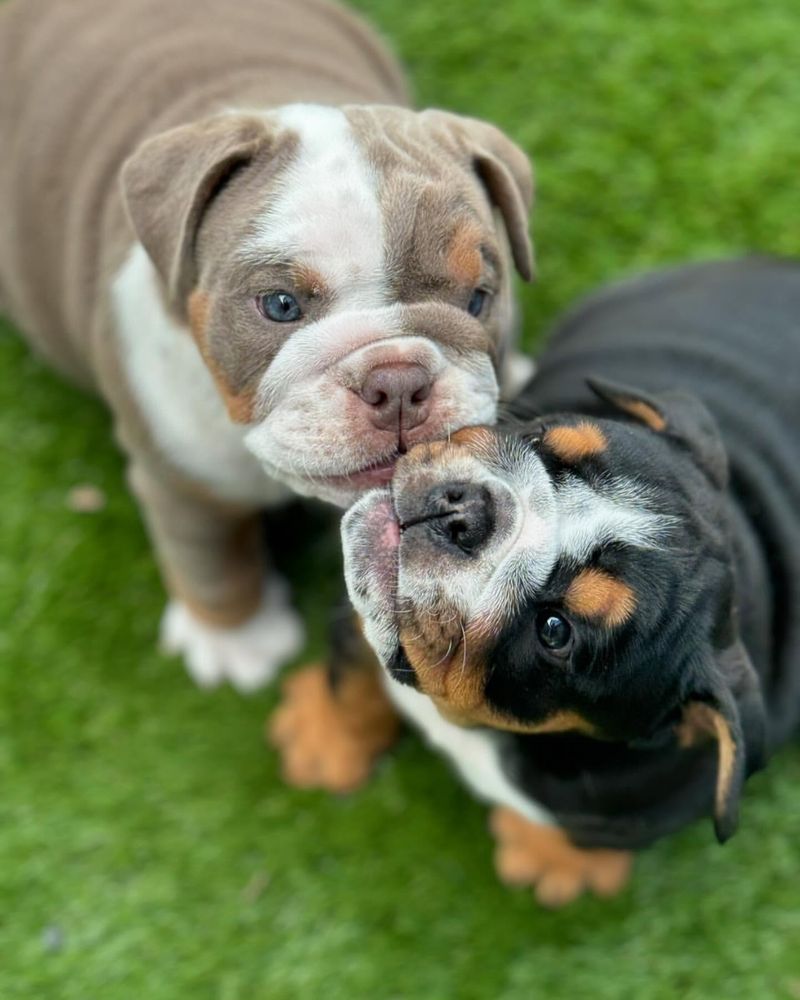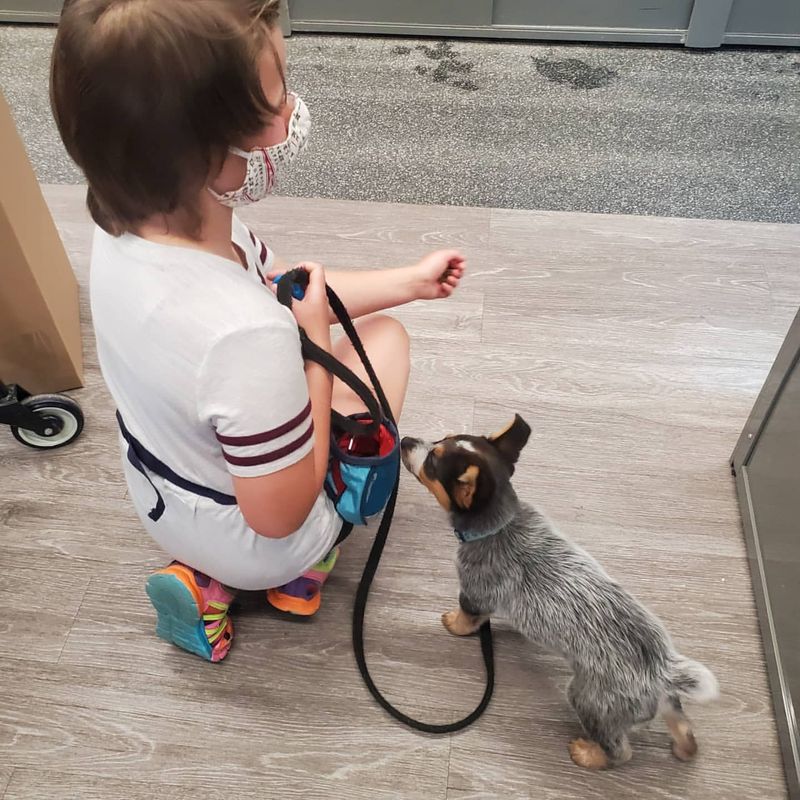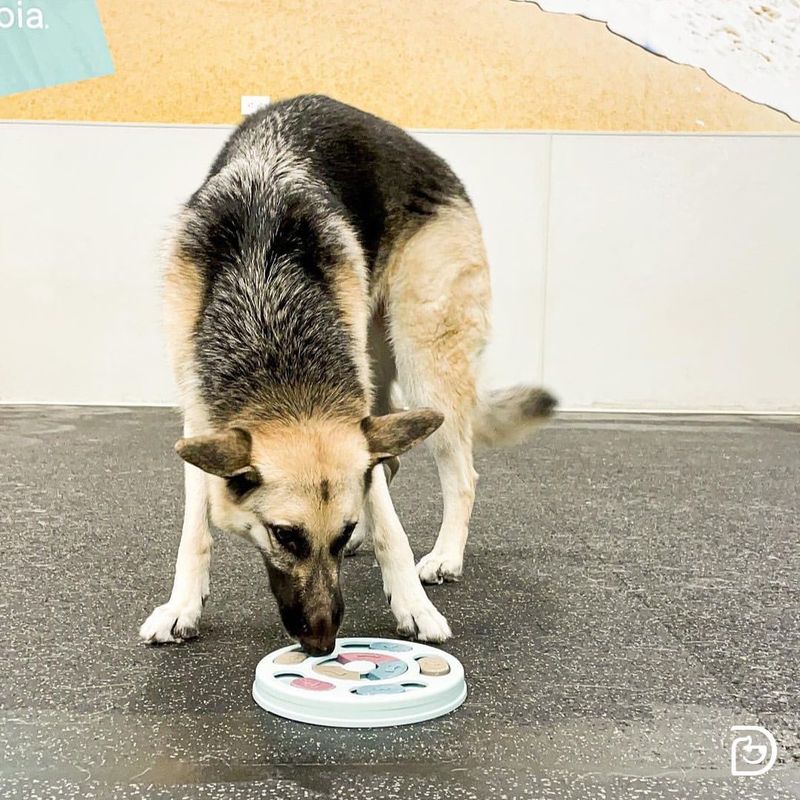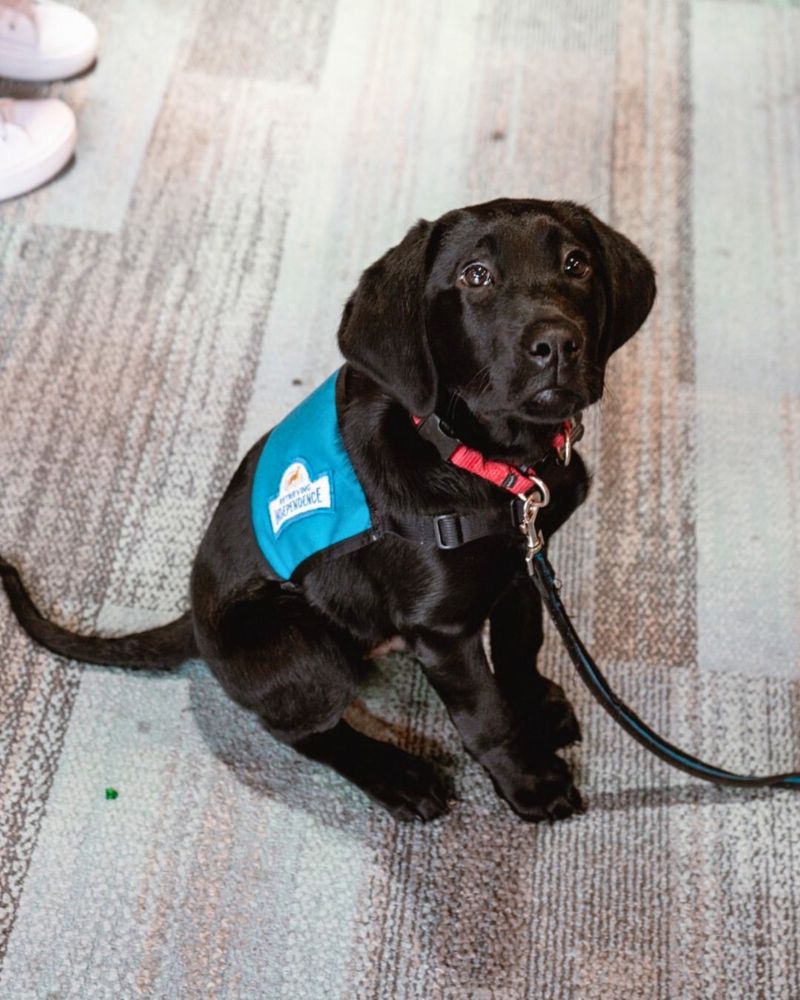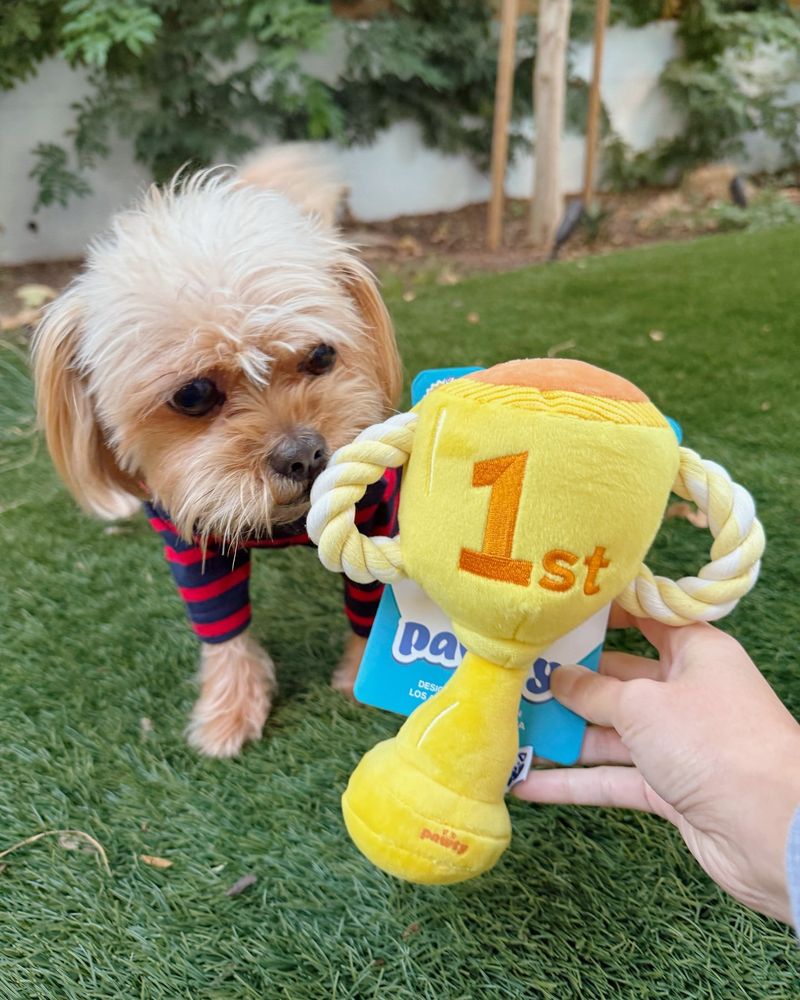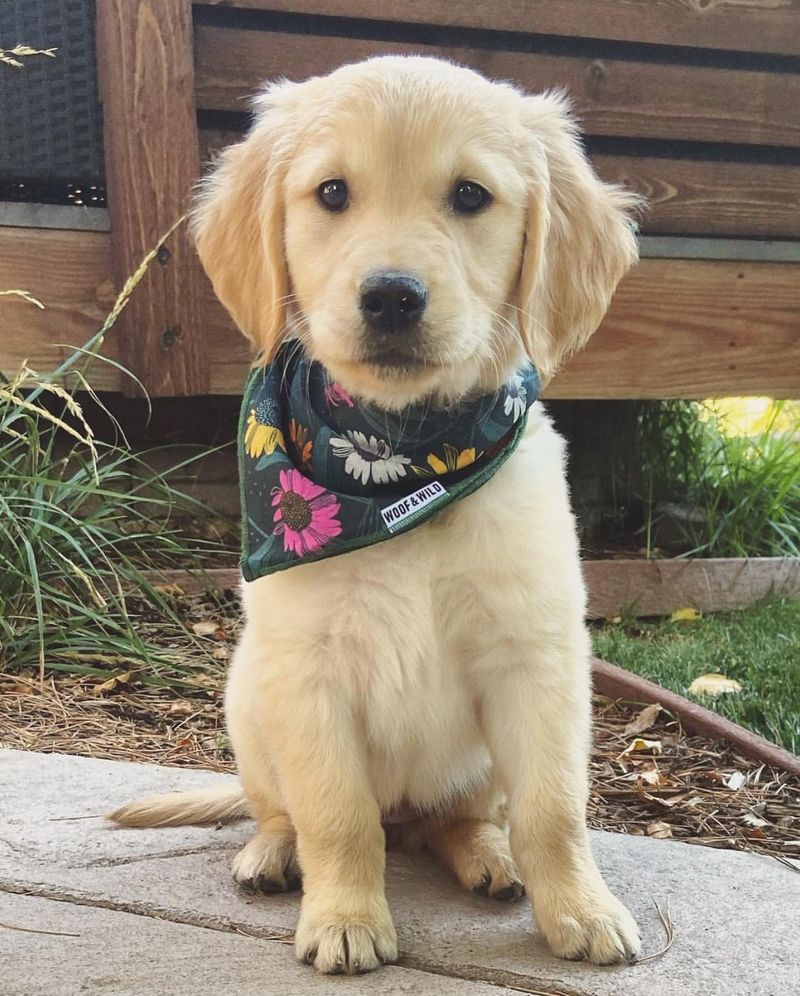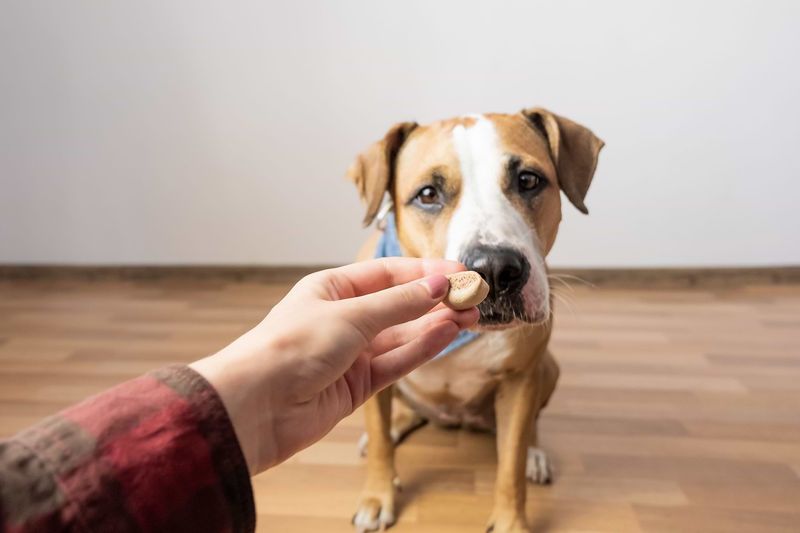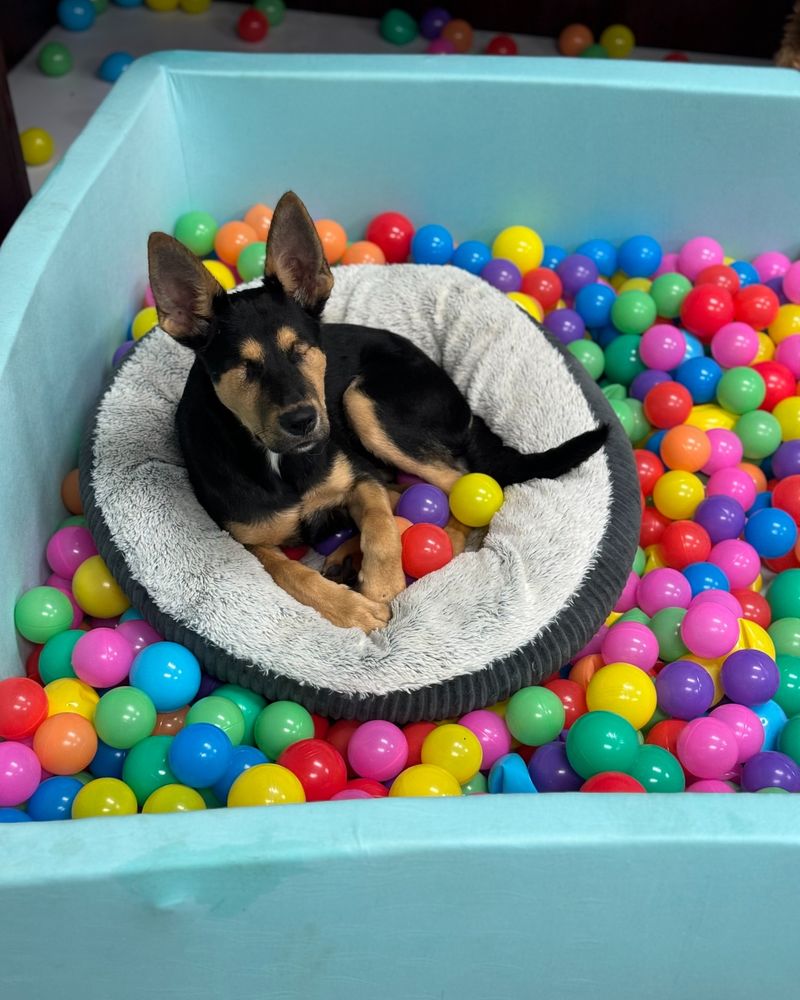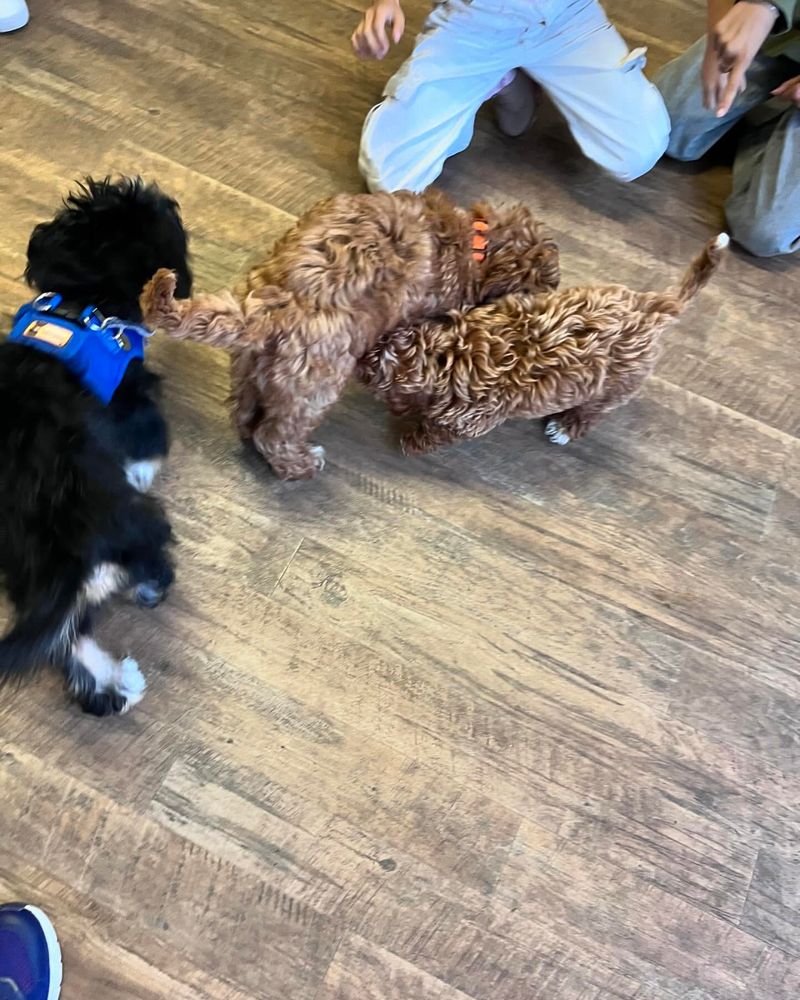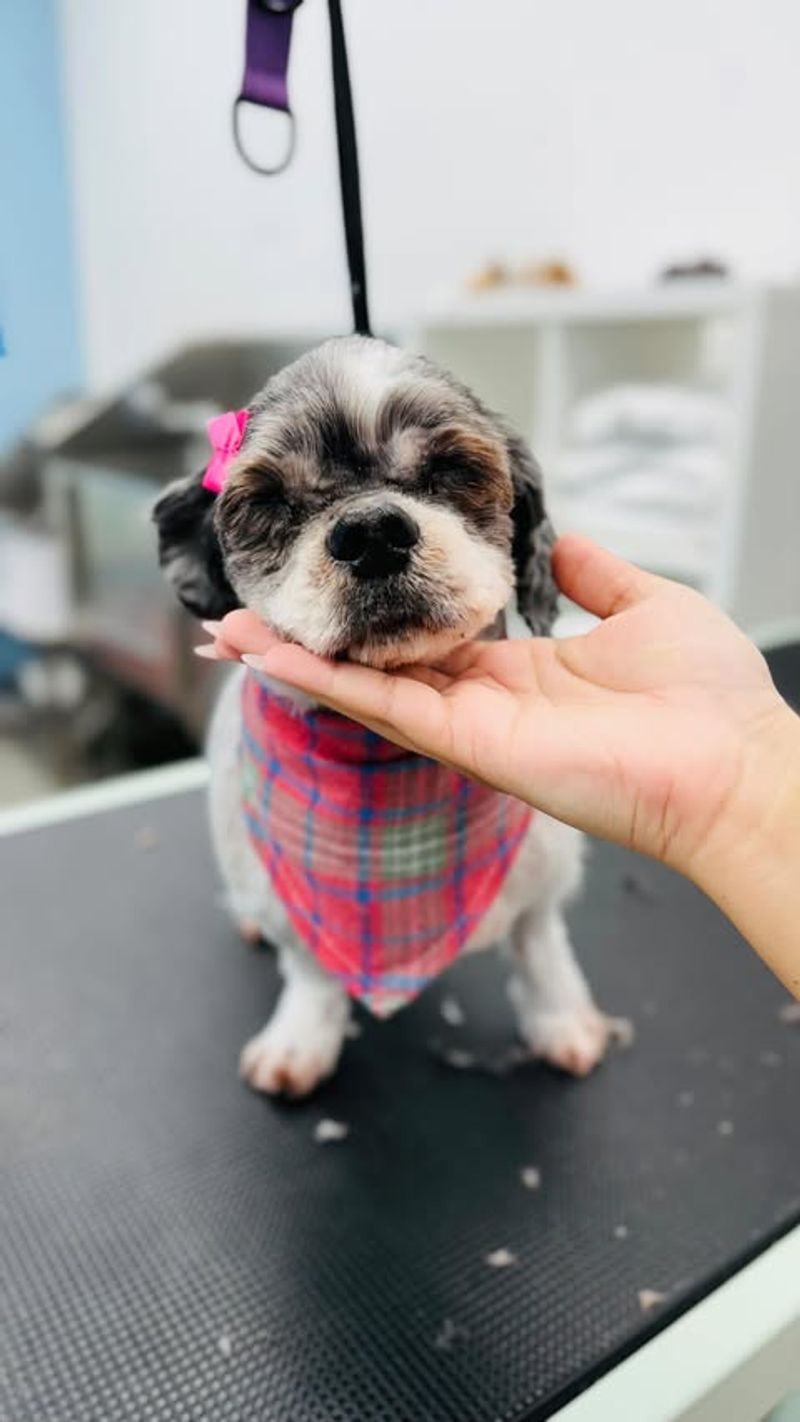Training a new puppy can be both an exciting and challenging experience. With the right guidance and patience, you can transform your playful pup into a well-behaved companion. Our comprehensive guide offers 23 carefully curated tips, ensuring you have all the tools necessary to succeed in this rewarding journey. From basic obedience commands to socialization strategies, these insights are designed to cater to both first-time dog owners and seasoned trainers. Follow “The Rule of Sevens” to unlock your puppy’s potential and build a lifelong bond founded on trust and understanding.
Understanding Canine Communication
Recognizing how puppies communicate is essential for effective training. Puppies express themselves through body language, sounds, and facial expressions. Understanding these signals helps in responding appropriately to their needs and emotions. A wagging tail and relaxed ears often indicate happiness, while a low growl might mean discomfort.
Observing your puppy’s cues will improve your connection and training results. Pay attention to their posture and vocalizations during interactions. This awareness fosters a positive environment, making your puppy more receptive to commands and lessons. Strengthen your relationship by being attentive and responsive to their unique communication style.
Consistency in Training
Consistency is the cornerstone of successful puppy training. Establishing a routine with clear rules helps your puppy understand expectations. Repeating commands and rewarding desired behaviors reinforces learning and builds good habits.
Avoid confusing your puppy with mixed signals by maintaining uniformity in your commands and actions. Consistent training sessions enhance your puppy’s ability to learn and adapt. Whether it’s using the same words for instructions or rewarding them with treats after positive behavior, consistency ensures steady progress. Your dedication to this principle will pave the way for a well-behaved and happy puppy.
Positive Reinforcement
Positive reinforcement is a powerful tool in puppy training, encouraging desired behaviors through rewards. Whether it’s a treat, praise, or playtime, reinforcing good actions makes them more likely to repeat. This method fosters a supportive learning environment, promoting trust and cooperation.
Avoid punishment as it can lead to fear and anxiety. Instead, focus on highlighting positives. Celebrating small achievements boosts your puppy’s confidence and eagerness to learn. Tailor the rewards to what motivates your puppy most, ensuring an enjoyable training experience. The key is to associate training with positivity and success.
Socialization from a Young Age
Early socialization is crucial for developing a well-rounded puppy. Introduce them to various environments, people, and other animals to build confidence and adaptability. These experiences help reduce fear and aggression, promoting a balanced demeanor.
Organize playdates with other puppies or controlled interactions with older dogs. Monitor their behavior and adjust interactions to ensure a positive experience. Early exposure to diverse situations prepares them for future challenges, fostering a friendly and outgoing personality. Embrace socialization as a vital part of their growth, enhancing their ability to thrive in different settings.
Crate Training Essentials
Crate training provides your puppy with a safe and comfortable space, aiding in housebreaking and reducing anxiety. Introduce your puppy to the crate gradually, associating it with positive experiences like treats and toys.
Ensure the crate is inviting and never use it as a form of punishment. Short, supervised sessions inside the crate help them acclimate. Over time, your puppy will see the crate as a sanctuary, aiding in managing their behavior. Crate training, when done correctly, becomes an invaluable tool for travel safety and establishing a secure routine at home.
Leash Training Basics
Leash training is essential for enjoyable walks and safety. Begin with a comfortable collar and a lightweight leash, allowing your puppy to explore without pulling. Keep the sessions short and positive, rewarding calm behavior.
Practice in low-distraction environments initially, gradually introducing more stimuli as your puppy becomes accustomed to the leash. Consistent practice reinforces good habits and builds confidence. Leash training not only enhances your puppy’s obedience but also contributes to their socialization and physical well-being. Make walks a delightful bonding activity by instilling proper leash manners early on.
Obedience Commands
Teaching basic obedience commands like ‘sit,’ ‘stay,’ and ‘come’ forms the foundation of good behavior. These commands ensure safety and improve communication between you and your puppy.
Start training in a distraction-free environment, using treats to reward compliance. Gradually increase complexity as your puppy masters each command. Consistent practice and positive reinforcement solidify their understanding of commands. Obedience training not only instills discipline but also strengthens your bond, making your puppy more attentive and responsive. Ensuring they grasp these essential skills prepares them for more advanced training later on.
Housebreaking Techniques
Housebreaking is a vital aspect of puppy training, teaching them appropriate bathroom habits. Establish a routine for feeding and bathroom breaks, guiding your puppy to designated potty areas.
Be patient and encouraging, as accidents are part of the learning process. Praise and reward successful attempts to reinforce good behavior. Consistency in timing and location helps your puppy understand expectations, reducing mishaps over time. Housebreaking requires diligence but ultimately leads to a clean and stress-free living environment. With patience and understanding, you’ll succeed in teaching your puppy essential house manners.
Handling Chewing Behavior
Chewing is a natural behavior for puppies, but it requires guidance to prevent damage. Provide a variety of chew toys to satisfy their need and protect household items.
Redirect their attention to appropriate toys when they chew on something undesirable. Supervise your puppy until they learn what’s acceptable to chew on. Offering plenty of alternatives minimizes the chances of destructive chewing. Reinforce good chewing habits with positive reinforcement, ensuring they understand the difference between toys and household objects. Proper management of chewing behavior fosters harmony and prevents unwanted damage.
Establishing Boundaries
Setting boundaries is crucial in training your puppy to respect household rules. Use tools like baby gates to define areas off-limits, maintaining control over their environment.
Consistency in enforcing these boundaries helps your puppy understand limits, preventing undesirable behaviors. Reinforce boundaries with verbal cues and rewards when they comply. Boundaries contribute to a safe and orderly home, making it easier for your puppy to navigate their surroundings. Establishing clear rules enhances discipline and reduces stress for both you and your puppy, leading to a harmonious living situation.
Managing Puppy Biting
Puppy biting is a natural behavior but requires guidance to manage. Teach your puppy bite inhibition by yelping or saying “ouch” when bites occur, signaling discomfort.
Redirect their attention to toys, offering positive reinforcement when they play gently. Consistent responses help them learn appropriate play behavior. Avoid harsh punishments, as they can lead to fear and aggression. With patience and guidance, your puppy will develop self-control and understand limits. Managing biting fosters a safe environment, ensuring pleasant interactions with family and friends.
Developing a Routine
Establishing a routine provides structure and stability for your puppy. Consistent schedules for feeding, potty breaks, and playtime help them understand daily expectations.
A predictable routine reduces anxiety and promotes healthy habits. Adjust the routine as your puppy grows, catering to their changing needs. Consistency in daily activities builds confidence and security, ensuring they thrive in their environment. Developing a routine not only aids in training but also strengthens your bond, as your puppy learns to trust your guidance. This foundation supports them in adapting to new experiences confidently.
Introducing Clicker Training
Clicker training is a rewarding and effective method for teaching new behaviors. The clicker marks desired actions, followed by a treat, reinforcing the connection between the sound and reward.
Begin by associating the click with a treat, gradually using the clicker to shape behaviors. Clicker training encourages positive reinforcement and clear communication. It enhances your puppy’s ability to learn quickly and accurately. This method is versatile, accommodating various training goals and skill levels. Embrace clicker training for a fun and engaging learning experience that strengthens your bond with your puppy.
Engaging in Mental Stimulation
Mental stimulation is vital for a puppy’s development, keeping them active and engaged. Provide toys and activities that challenge their intellect, such as puzzle toys and interactive games.
Rotate toys regularly to maintain interest and prevent boredom. Mental enrichment reduces undesirable behaviors by occupying their minds constructively. Engage in activities that encourage problem-solving and curiosity. This approach supports cognitive development, ensuring a well-rounded puppy. Offering mental challenges strengthens your bond and enhances their overall well-being, contributing to a balanced and contented companion.
Fostering Independence
Encouraging independence in your puppy builds confidence and self-reliance. Allow them to explore new environments and experiences at their own pace, fostering growth.
Provide opportunities for them to solve minor challenges unaided, supporting problem-solving skills. Balance independence with supervision to ensure safety and learning. Fostering independence enhances their adaptability and resilience, preparing them for various situations. Building confidence through exploration strengthens their trust in you as a guide, promoting a healthy, balanced relationship. Embrace independence as a key component in your puppy’s development journey.
Using Toys Effectively
Toys are more than entertainment; they’re essential tools for growth and learning. Select toys that cater to your puppy’s size, age, and energy level, ensuring safety and engagement.
Rotate toys to maintain interest and challenge. Interactive toys promote physical exercise and mental stimulation, enhancing their development. Toys provide an outlet for natural behaviors like chewing and chasing, redirecting energy positively. Effective toy use fosters independence and creativity, reducing the likelihood of boredom-related issues. By choosing and utilizing toys wisely, you contribute to a happy and well-adjusted puppy, enriching their daily life.
Addressing Separation Anxiety
Separation anxiety is common in puppies, presenting challenges for pet owners. Gradually accustom your puppy to being alone, starting with short intervals and extending them over time.
Create a comforting environment with familiar scents and toys to ease anxiety. Positive reinforcement upon your return reassures them of your presence. Avoid prolonged goodbyes or dramatic exits, which can increase anxiety. Overcoming separation anxiety requires patience and consistency, fostering a sense of security. With understanding and effort, you can help your puppy feel comfortable and relaxed, even when you’re not around.
Practicing Patience and Persistence
Patience and persistence are vital in nurturing a well-behaved puppy. Training takes time, requiring consistency and understanding. Celebrate small victories without rushing the process.
Remember that puppies learn at their own pace, and setbacks are part of the journey. Stay committed to your training schedule, adapting as needed. Your patience fosters a trusting and respectful relationship, enhancing your puppy’s willingness to learn. Persistence ensures steady progress, leading to long-term success. By embodying these qualities, you set the stage for an enduring and rewarding companionship with your puppy.
Incorporating Play and Exercise
Play and exercise are fundamental for a puppy’s health and happiness. Daily activities like walks, fetch, and interactive games promote physical fitness and mental alertness.
Encourage play that suits your puppy’s energy level and breed, ensuring a balanced routine. Exercise mitigates behavioral issues by releasing excess energy and reducing stress. Bond through play, strengthening your connection while enhancing socialization skills. Regular exercise contributes to a healthy lifestyle, supporting growth and development. Integrating play into your routine enriches your puppy’s life, fostering joy and well-being.
Attending Puppy Classes
Puppy classes offer structured learning and socialization, guided by experienced trainers. These classes introduce foundational commands and address common challenges.
Participating in group settings enhances your puppy’s social skills, exposing them to diverse environments. Classes provide valuable insights and support, helping you navigate training hurdles. Engaging with other puppies fosters a sense of community and playfulness. With expert guidance, you gain confidence in your training abilities, ensuring your puppy’s success. Attending classes complements home training, creating a comprehensive learning experience for you both.
Maintaining Health and Hygiene
Health and hygiene are crucial for a puppy’s well-being. Regular grooming, vaccinations, and vet check-ups keep them healthy and happy. Establish a grooming routine, including bathing, brushing, and nail trimming.
Monitor their diet and exercise, adjusting to their needs as they grow. Maintaining hygiene prevents health issues, ensuring a vibrant and active life. Your commitment to their health builds trust and strengthens your bond. By prioritizing well-being, you create a foundation for a fulfilling relationship, filled with joy and adventure.
Celebrating Achievements
Celebrating your puppy’s achievements reinforces positive behavior and boosts confidence. Acknowledging progress, no matter how small, encourages continued effort and enthusiasm.
Use praise, treats, or special activities to mark milestones. Celebrations strengthen your bond, creating lasting memories. Recognizing their achievements fosters a supportive learning environment, making training enjoyable. By focusing on successes, you motivate your puppy to reach new heights, enhancing their development. These celebrations become moments of joy, highlighting the rewards of your dedication and love. Acknowledging triumphs enriches your connection, paving the way for a harmonious and happy life together.
